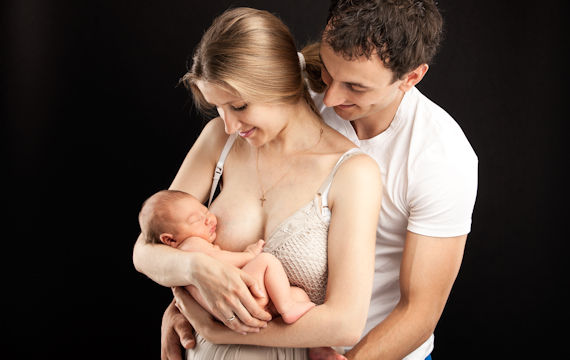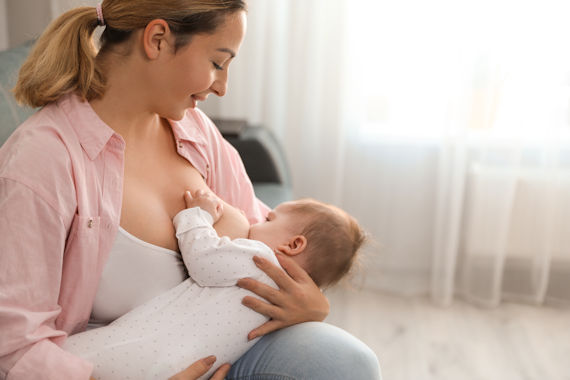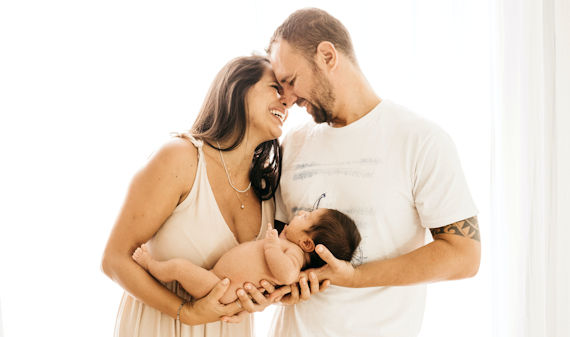PARENTING AFTER BIRTH

After birth we entered the so-called "fourth trimester of pregnancy", the first three months of the baby's life.
The baby needs as much of the mother to survive as in intrauterine life. The mother and baby bond is a vital process for the survival of the baby, and in fact for the survival of all humanity. A maternal bond is the relationship, the connection that exists between a mother and her child. It is the first recognition of love that we have in our life, which begins even before pregnancy, in the time a mother is thinking about having a child, and then it unfolds during pregnancy, and in early infancy.
The fourth trimester is the time when the mother begins to breastfeed, helping the baby in its survival, in the continuous emotional and mental development, and in its adaptation to the outside world.

Breastmilk is a living, complete and natural food, adaptable to the physiological and immune needs of the baby, at every moment of baby’s life.
Breastfeeding is a unique and rewarding experience, helps strengthen the bond between mother and baby, activates the newborn’s brain with hormones of happiness and love, develops the baby's psychomotor capacity, enhances self-esteem and safety, prevents infections, allergies, and also produces a set of hormones that help uterine contraction, reduce blood loss, and accelerate the return of the uterus to normal size following delivery. The benefits for the health and well-being of both mother and baby are undeniable.
The mother can be supported to breastfeed her baby with the same feeling of love and peace she had during pregnancy. Like her red blood, this white blood, her milk, is also impregnated with her emotions and thoughts.

The first years of a baby’s life outside the womb are critical for his development not only physically but also emotionally. The capacity to regulate emotions during the first year of life largely depends on how parents deal with their baby's emotions. Babies co-regulate their emotions and are fully dependent on their environment, and the maternal impact is bigger because their bond happened for the very first start, they breastfeed, and they usually spend more time with their babies.
Sensitive parents don’t get over worried and anxious if they see their baby crying, they stay calm and aware, they observe their baby’s needs and act upon it, and they connect with their baby. Babies have a lot of reasons to cry and sometimes they need to breastfeed not because they are hungry but because they are unsettled about something, helps them to regulate their feelings, they might need to feel safe and secure, loved and cared, they want comfort, and they seek connection as in the womb.
Later in life, sensitive parents stay calm and gentle, talking smoothly and expressing love to their child until the intensity of the child decreases. This sensitive parent behavior helps to co-regulate the child’s internal experiences, the child learns to experience emotions not as overwhelming or overpowering but as manageable. In this way, the co-regulation between parents and babies can slowly develop into a healthy degree of self-regulation in infant, toddler and child.
